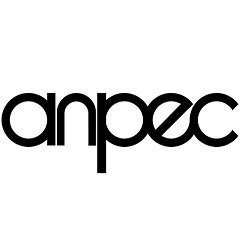Enunciados de questões e informações de concursos
Based on your interpretation of the texts that follow, determine if each statement is true or false.
Text 2
(From The Economist print edition April 21st-27th 2012)
Excerpts from:
France’s presidential election
The anti-Sarkozy vote
All the signs point to a win for the Socialist François Hollande, chiefly because he is the anti-Sarkozy candidate
Apr 21st 2012 | DONZY | from the print edition
FAR from the giant rallies and big-screen showmanship of the final days of a presidential campaign, the sleepy town of Donzy in Burgundy feels untouched by politics. The talk in the bars is of the local fête and fishing. Only one campaign poster, for a fringe anti-capitalist, has been pasted to the municipal noticeboard. Yet this bellwether town is a pointer to how the French will vote in the election on April 22nd and May 6th: at every poll since 1981, it has gone for the winner.
In 1981 Donzy backed François Mitterrand, a Socialist. In 2007 it swung behind Nicolas Sarkozy, on the Gaullist right. This time the little town, encircled by wheat fields and home to factories making plastic straws and umbrellas, looks likely to back François Hollande, the Socialist. “My bet is that Donzy will vote Hollande,” says Jean-Paul Jacob, the (independent) centre-right mayor. This is not out of enthusiasm for the man, as “people find him cold, there’s no fervour about him.” Rather, the mayor thinks, it reflects disappointment with Mr Sarkozy. “His personality”, he says wryly, “doesn’t leave people indifferent.”
(...)
It is perhaps natural that the French should want change. The Gaullists, under Mr Sarkozy and his predecessor, Jacques Chirac, have held the presidency since 1995. Right across Europe in the euro-zone crisis, incumbents have been unseated by disgruntled voters. The French are fearful and restless and want something different. But the prospect of Mr Sarkozy’s defeat is still a remarkable one, in many ways. Unlike Mr Giscard d’Estaing, who had to run against Mr Chirac as well as facing Mitterrand, he has no centre-right rival. And he can reasonably claim to be the sort of authoritative leader to whom voters might turn in a crisis. Indeed, polls suggest the French rate Mr Sarkozy more highly than Mr Hollande for most traits to do with leadership. He scores better for having “the authority of a head of state” (54%, next to 23% for Mr Hollande), for being “capable of taking difficult decisions” (49 to 23%) and for being “capable of taking the right decisions faced with the current economic and financial crisis” (41 to 27%).
The French also recognise Mr Sarkozy’s energetic efforts during the euro crisis. He has pushed through unpopular reforms to universities and a rise in the retirement age. And he has a decent foreign-policy record, from taking France back into NATO’s military structure to his intervention in the 2008 Russian-Georgian war and his joint leadership of the campaign against Libya. Next to all this, Mr Hollande, a Socialist hack who led a fractious party for 11 years and has never had a ministerial job, is a debutant: his biggest crisis was a 2005 party split over the draft European Union constitution. With his friends from the Mitterrand era, there is little fresh about him.
(...)
The strain in the Sarkozy camp is beginning to show. A poll this week gave him only 24% in the first round, fully five points behind Mr Hollande. Not one poll has had Mr Sarkozy winning the second. On the far right, Marine Le Pen could well do better than polls suggest, and come in ahead of both the Communist-backed Jean-Luc Mélenchon and the centrist François Bayrou, whose efforts to talk seriously about France’s dire public finances have won him little support.
Assuming there is no big upset, such as Ms Le Pen copying her father by breaking into the second round, the two front-runners will then need to tack back to the centre, while also trying to recapture the protest vote. This polls a total of 35%, more than either mainstream candidate. The task is harder for Mr Sarkozy, as the far-right vote will not swing automatically to him, whereas almost all of Mr Mélenchon’s will go to Mr Hollande. One poll has only 44% of Ms Le Pen’s voters backing Mr Sarkozy in round two, with 38% undecided.
Back in Donzy, the locals are resigned to a Hollande victory, but not thrilled. This may be because, deep down, they know that the next president faces difficult decisions and an empty public purse, whatever extravagant campaign promises he makes. “Hollande can say what he wants,” says Serge Rebeillard, who is retired, “but when he gets into office he won’t have any choice. The honeymoon will be very short.”
One can infer from the text that
Item 3 - The winner in the presidential elections has usually been the winner in Donzy;
-
Errado
Outras questões do mesmo concurso: ANPEC / ExSN (ANPEC) / 2012


